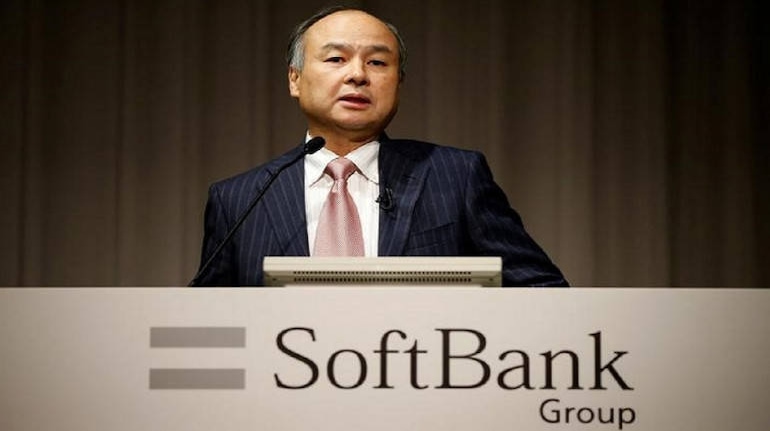



‘Monetisation’ was the most-used word during Masayoshi Son’s 20-minute-long post-earnings speech on November 11, which was much shorter than his usual 45-minute-long talks. This was his last post-earnings address ‘for the foreseeable future,’ as his CFO Yoshimitu Goto will lead the earnings call hereon.
SoftBank reported a net profit of 3.03 trillion yen ($21.77 billion) in the three months to September 30, thanks to a 5.37 trillion yen ($37 billion) one-time gain related to the early settlement of prepaid forward contracts using Alibaba’s shares, the company’s regulatory filings showed.
This time around the 65-year-old billionaire had dialled down his usual vibrant presentations that are full of charts and graphs. However, the raconteur in him was in full flow.
In his previous address, Son showed a portrait of Tokugawa Ieyasu, the founder and first shogun (military commander) of Japan’s Tokugawa shogunate, or military dictatorship. He said the picture precisely demonstrated his feelings after Softbank had recorded a multi-billion dollar loss for the second straight quarter. The picture was drawn after Ieyasu suffered a loss at the battle of Mikatagahara.
This time, he talked about how he came across a photo of a microchip in a magazine about 45 years back, which got him interested in the information revolution. Son said that the information revolution was changing rapidly every day. Computing had shifted from PCs (personal computers) to smartphones. Similarly, leadership in CPUs has shifted to Arm, a semiconductor subsidiary of SoftBank, from Intel, the American multinational.
Son said that he did not have any health issues and would be spending more time on Arm. He felt the current market downturn was the third biggest after the dotcom bust and the Lehmann crisis, and said that Softbank will monetise ‘whatever it can’ to survive this economic downturn.
“At the time of the dotcom bust we had to sell assets to survive. Even during the Lehman crisis, we survived by monetising assets,” said Son.
“Covid is our third crisis. We have once again decided to monetise in order to survive. I wanted to sell as few assets as possible. After monetising some assets, we realised that we didn’t need to monetise everything, so that’s why only a third was sold for cash,” Son added.
Son was talking about the one-third stake SoftBank sold in its crown jewel, Alibaba. That helped it record a quarterly profit for the first time in three quarters. In the earnings presentation, Goto said that the company had brought down its stake in Alibaba to 15 percent as of September 30, from over 20 percent in the previous quarter.
Softbank had reported its biggest-ever quarterly loss in the April-June quarter of this year, which resulted in the company reporting a loss of $913 million in the first six months of the financial year. SoftBank follows an April-March calendar.
Son had said that SoftBank will be very selective with its investments, even though many believe that this is the right time to buy as valuations have corrected significantly across the globe.
He added that Softbank will continue with its defensive strategy, and invest in fewer deals amid a slowdown in global financial markets.
“The US CPI (consumer price index) inflation announced yesterday made us feel a little relieved. However, they will raise rates to control inflation. Consequently, markets will remain corrected for some time, especially in the tech sector. Markets could be volatile as well,” Goto said.
SoftBank’s cautious approach towards investments comes at a time when FTX, one of the world’s largest cryptocurrency exchanges, in which SoftBank has invested about $100 million, has warned of bankruptcy. While SoftBank did not comment on the loss expected from FTX, a Reuters report said that it had internally marked down FTX’s valuation to zero, a day after Sequoia, another investor in FTX, had written down its investment in the crypto company.
Moreover, there were murmurs that some of the biggest Indian companies in Softbank’s portfolio, including Ola, were going for down rounds. In September, SoftBank had reportedly marked down the valuation of IPO-bound Oyo by 20 percent. Oyo is one of the biggest Indian firms in its portfolio.
In May, Son had said that SoftBank will cut its investments to a quarter in 2022. Son’s caution is reflected in the number of investments Softbank has made since the start of the year. In the second quarter of FY23, SoftBank has just invested $300 million, against $14.6 billion in the year-ago period. So far in 2022, SoftBank has invested $7.5 billion versus $15.6 billion in the first quarter of FY22 itself.
Son had announced in August that SoftBank would be cutting jobs across its Vision Fund investment units. The company has reportedly let go of 150 employees, or about 30 percent of its staff, since August this year. However, Navneet Govil, CFO, Softbank Vision Fund, said on November 11 that the company would let go of more than 30 percent of its employees.
For India, SoftBank’s earnings and Son’s comments are important as the Japanese conglomerate has been a prolific investor here. SoftBank has backed as many as 21 unicorns in India till date, according to data by Venture Intelligence.

Discover the latest Business News, Sensex, and Nifty updates. Obtain Personal Finance insights, tax queries, and expert opinions on Moneycontrol or download the Moneycontrol App to stay updated!
Find the best of Al News in one place, specially curated for you every weekend.
Stay on top of the latest tech trends and biggest startup news.